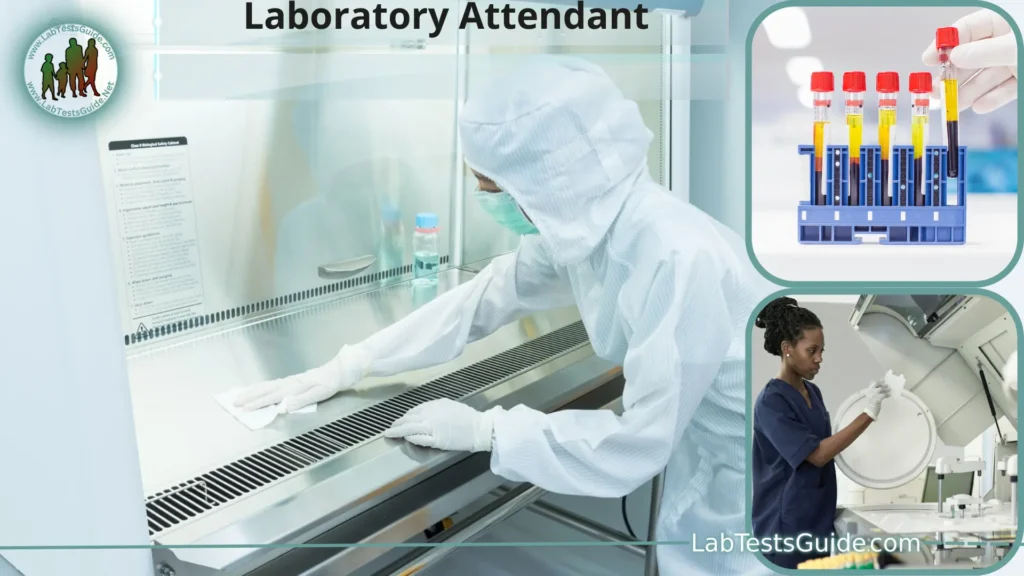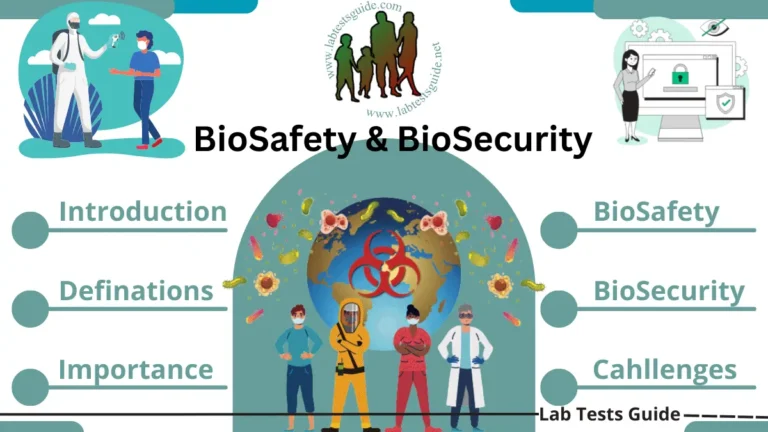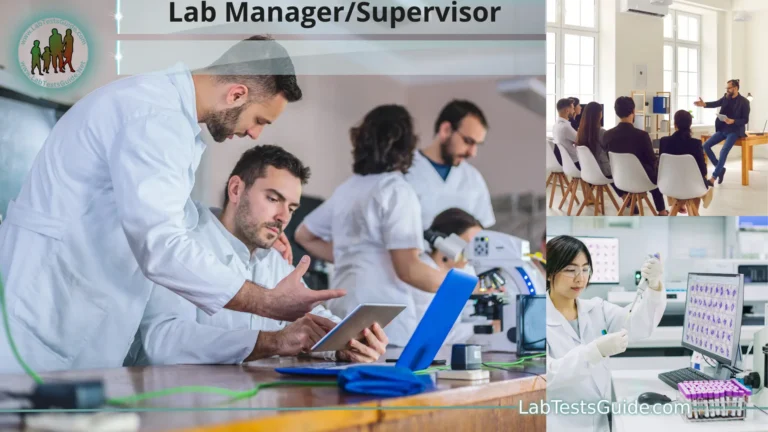A medical laboratory attendant (MLA), sometimes referred to as a medical laboratory assistant (MLA) or a medical laboratory technician (MLT), plays a crucial role in healthcare settings such as hospitals, clinics, and diagnostic laboratories.

Career Prospects for Medical Laboratory Attendant:
- Medical Laboratory Technician (MLT): Many MLAs choose to further their education and become certified medical laboratory technicians. MLTs have a broader range of responsibilities and can perform more complex laboratory tests. This can lead to higher earning potential and increased job opportunities.
- Specialization: Within the field of medical laboratory science, MLAs can specialize in various areas, such as clinical chemistry, microbiology, hematology, or histology. Specialization may require additional training or certification but can lead to more specialized and higher-paying positions.
- Medical Laboratory Technologist (MT): With additional education and certification, MLAs can become medical laboratory technologists. MTs perform advanced laboratory tests, analyze results, and may supervise laboratory staff. This career path offers greater responsibility and potentially higher salaries.
- Supervisory and Management Roles: Experienced MLAs and MTs can advance to supervisory or management positions within the laboratory. These roles involve overseeing laboratory operations, managing staff, and ensuring regulatory compliance.
- Quality Assurance and Compliance: Some MLAs with a keen interest in quality control and compliance may pursue careers as quality assurance specialists or laboratory compliance officers. They ensure that the laboratory adheres to industry standards and regulatory requirements.
- Research and Development: MLAs with a strong background in laboratory techniques and a desire for innovation may find opportunities in research and development roles within pharmaceutical companies, biotech firms, or academic institutions.
- Education and Training: Experienced MLAs and MTs may transition into roles as educators or trainers, teaching the next generation of laboratory professionals. This can involve instructing in educational institutions or conducting in-house training for laboratory staff.
- Pathology Assistant: Some MLAs choose to specialize further and become pathology assistants. They work closely with pathologists to assist in performing autopsies, preparing tissue samples for examination, and documenting findings.
- Healthcare Management: MLAs with leadership skills and an interest in healthcare administration may pursue careers in healthcare management or administration. They can work in hospitals, clinics, or healthcare organizations in roles that involve managing laboratory services.
- Entrepreneurship: With the right skills and experience, MLAs may start their own medical laboratory or diagnostic service. This entrepreneurial path requires business acumen, regulatory compliance knowledge, and a strong understanding of laboratory operations.
- Global Opportunities: The skills and certifications acquired as an MLA can be transferable to healthcare systems in different countries, offering opportunities for international work or travel.
Qualifications and Education:
To become a medical laboratory attendant (MLA) or assistant, you typically need a combination of education and on-the-job training. Here are the qualifications and educational requirements typically associated with this career:
- High School Diploma or Equivalent: Most employers require MLAs to have at least a high school diploma or equivalent (e.g., GED). A strong foundation in science courses such as biology and chemistry can be beneficial.
- Post-Secondary Education: While not always mandatory, many MLAs choose to pursue formal education in medical laboratory science or a related field to enhance their career prospects. Common options include:
- Certificate Programs: These programs typically last one year or less and provide specific training in laboratory techniques and procedures. They are often offered by community colleges or vocational schools.
- Associate’s Degree Programs: An associate’s degree in medical laboratory technology or a related field is a common pathway to becoming a certified medical laboratory technician (MLT). These programs usually take two years to complete and include both classroom instruction and hands-on laboratory training.
- Certification: Although certification is not always required, it can significantly improve job prospects and earning potential. In the United States, for example, MLAs can become certified as medical laboratory assistants or phlebotomy technicians through organizations like the American Medical Technologists (AMT) or the American Society for Clinical Pathology (ASCP).
- Licensure: Some states or countries may require MLAs to obtain a state license or registration to work in medical laboratories. Licensure requirements vary by location, so it’s essential to check the regulations in your area.
- On-the-Job Training: Once hired, MLAs typically receive on-the-job training specific to the laboratory where they work. This training covers laboratory protocols, safety procedures, equipment operation, and specimen handling. The length and depth of this training can vary depending on the complexity of the laboratory’s work.
- Continuing Education: To stay current with advances in medical laboratory science and maintain their certification, MLAs often participate in continuing education programs and workshops.
Skills and Qualities:
To excel as a medical laboratory attendant (MLA) or assistant, you should possess a combination of technical skills, interpersonal qualities, and personal attributes. These skills and qualities are essential for performing your duties effectively and ensuring the accuracy and reliability of laboratory results. Here are some key skills and qualities required for success in this role:
- Technical Laboratory Skills:
- Specimen Collection: Proficiency in collecting various types of patient samples, such as blood, urine, and tissue specimens, with precision and attention to detail.
- Sample Processing: Ability to prepare, handle, and process specimens accurately, including centrifugation, aliquoting, and labeling.
- Equipment Operation: Competence in operating and maintaining laboratory equipment and instruments, such as microscopes, centrifuges, and analyzers.
- Laboratory Techniques: Knowledge of laboratory techniques, including pipetting, dilution, and staining methods.
- Quality Control: Understanding of quality control procedures to ensure the reliability and accuracy of test results.
- Attention to Detail: A high degree of attention to detail is crucial to prevent errors in sample handling, labeling, and data recording. Precision is essential in laboratory work.
- Organization: Effective organization skills are vital for managing multiple samples, maintaining an orderly work environment, and keeping track of laboratory supplies and inventory.
- Analytical Thinking: The ability to think critically and solve problems when issues arise during testing or sample handling is essential for MLAs.
- Communication Skills: Clear and concise communication is necessary when interacting with patients, healthcare professionals, and laboratory colleagues. Patients should be put at ease during sample collection, and test results should be conveyed accurately.
- Adherence to Protocols: Strict adherence to laboratory protocols, safety guidelines, and regulatory standards is a fundamental aspect of the job to ensure the safety of both patients and laboratory staff.
- Stress Management: Working in a fast-paced healthcare environment can be stressful. MLAs should be able to handle pressure and remain calm during busy times.
- Teamwork: Collaborating effectively with other laboratory staff, including medical technologists and pathologists, is essential to ensure seamless laboratory operations.
- Ethical and Professional Conduct: Maintaining high ethical standards and professionalism is crucial in handling sensitive patient information and ensuring the integrity of laboratory results.
- Adaptability: The ability to adapt to changes in laboratory procedures, technology, and regulations is important in this rapidly evolving field.
- Customer Service: When interacting with patients, MLAs should exhibit excellent customer service skills, providing comfort and reassurance during specimen collection.
- Mathematics and Computer Skills: Basic math skills are needed for calculations, and proficiency in using computer software for data entry and analysis is often required.
- Continuing Education: MLAs should have a commitment to lifelong learning and staying updated on advancements in laboratory science and technology.
- Physical Stamina: The role may involve standing for extended periods, as well as some lifting and carrying of equipment and supplies.
- Safety Awareness: A strong awareness of safety protocols and the ability to handle hazardous materials safely are essential for protecting oneself and others in the laboratory.
Job Description / Responsibilities:
The job description and responsibilities of a medical laboratory attendant (MLA) or assistant vary depending on the specific laboratory setting, the level of education and certification, and the region’s regulations. However, here is a general overview of the typical responsibilities associated with this role:
Job Description: A medical laboratory attendant (MLA) plays a vital supporting role in a healthcare or clinical laboratory setting. They are responsible for assisting with various tasks related to specimen collection, sample processing, laboratory maintenance, and data recording.
Responsibilities:
- Specimen Collection:
- Collect various types of patient specimens, such as blood, urine, and tissue samples.
- Ensure proper identification and labeling of collected samples, including patient information and test requisition details.
- Follow aseptic techniques and safety protocols during specimen collection to prevent contamination and ensure patient safety.
- Sample Processing:
- Prepare collected samples for analysis by centrifuging, aliquoting, and labeling them accurately.
- Follow established laboratory procedures for specimen processing and handling.
- Handle and store specimens according to safety guidelines and regulatory requirements.
- Equipment Operation and Maintenance:
- Operate and maintain laboratory equipment and instruments, including microscopes, centrifuges, and analyzers.
- Perform routine maintenance and calibration of equipment to ensure accurate and reliable results.
- Recognize and report equipment malfunctions or issues promptly.
- Data Entry and Record Keeping:
- Accurately record specimen information, test results, and other data into laboratory information systems (LIS) or electronic health records (EHRs).
- Maintain organized records of laboratory activities and patient information.
- Ensure data confidentiality and compliance with privacy regulations.
- Quality Control:
- Participate in quality control procedures to monitor the accuracy and precision of laboratory tests.
- Identify and report any deviations or discrepancies in test results.
- Assist in troubleshooting and resolving quality control issues.
- Laboratory Supplies and Inventory Management:
- Monitor and maintain inventory levels of laboratory supplies, reagents, and consumables.
- Order necessary supplies to ensure uninterrupted laboratory operations.
- Check expiration dates and dispose of outdated materials properly.
- Compliance and Safety:
- Adhere to laboratory protocols, safety guidelines, and regulatory standards, including those set by organizations like CLIA and CAP.
- Handle hazardous materials, biohazardous waste, and sharps containers in a safe and compliant manner.
- Maintain a clean and sterile work environment.
- Patient Interaction:
- Interact with patients in a professional and compassionate manner during specimen collection.
- Provide instructions to patients on proper specimen collection procedures, ensuring patient comfort and privacy.
- Assist Laboratory Technologists and Scientists:
- Collaborate with medical laboratory technologists (MLTs), scientists, and pathologists in performing laboratory tests and experiments.
- Assist in data analysis and report generation.
- Continuing Education: Stay updated on advancements in laboratory science and technology through ongoing education and training.
- Other Duties: Perform additional duties as assigned by laboratory supervisors or managers to support laboratory operations.
The specific duties and responsibilities of an MLA may vary from one healthcare facility to another, but these core tasks are common to the role in most settings. Additionally, the responsibilities may expand for certified MLTs and those with specialized training.
Possible References Used





